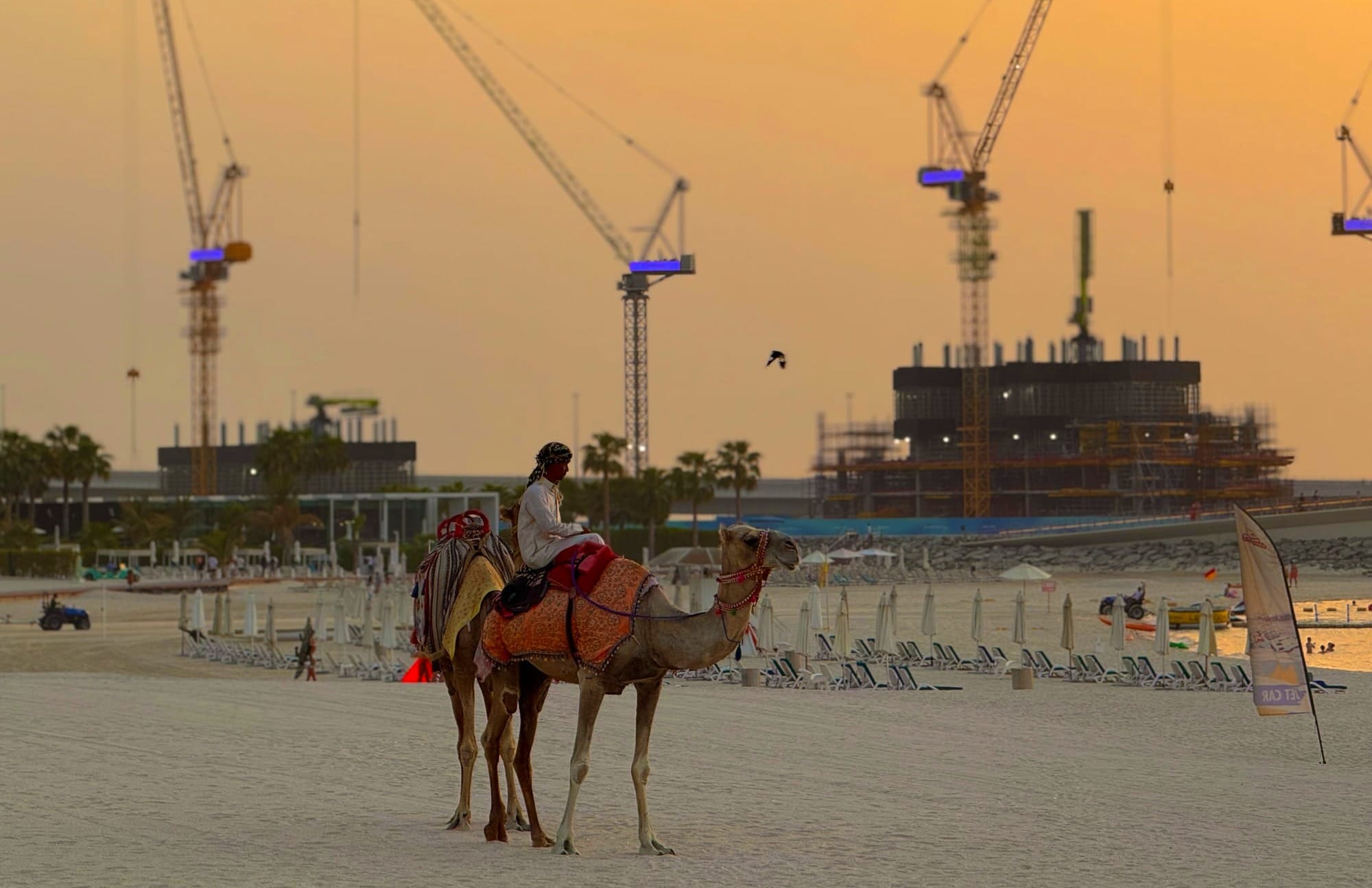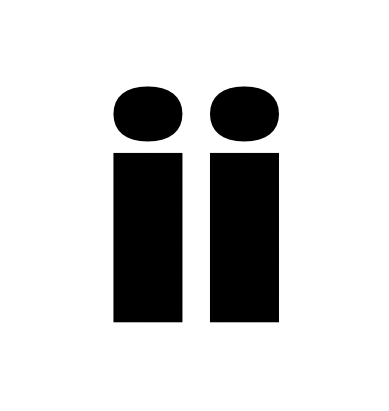The Hidden Pulse of Dubai: An Unspoken Currency of Sacrifice.

At first glance, Dubai feels like the future incarnate but stay long enough and you learn of the sacrifice that keeps its skyline standing. Upon returning from Dubai, my fingers lay restless on the keyboard, twitching with a desire to muster order into the chaos of Dubai's dissociative identities and ensnaring veneer. Staying in Jumeirah Beach Residence, a polished enclave where the desert meets sea, and the semblance of a Western coastal city is rehearsed with an unnerving precision. Skyscrapers march the skyline in neat formation, the promenade bustles with expats, and the Arabian Gulf laps against engineered sands, now reduced to an Instagram backdrop.
As the days passed, I allowed myself to observe more carefully, I found the real story of Dubai was not written in its towers of steel and glass, nor in its luxury malls, imported cuisines or even museum exhibitions. It is written instead in the silenced labour of those who build and sustain it; men and women whose lives are consumed so that this spectacle of wealth may glitter uninterrupted.
Walking through Dubai, I was confronted by a horizon that stretches the imagination. Behind the veil of futurity lies a reality rarely acknowledged, it is not the visionary Emiratis nor the British expatriates who fabricate this vista. It is the migrant worker from Pakistan and Bangladesh and India and the Philippines and Nepal and Sri Lanka and Egypt and Sudan and Ethiopia amongst a wide array of other nationals who face the sun, day after day and labour brick upon brick, until grand visions became palpable destinations. Often earning in a month what a tourist may spend in a weekend. Some never return home. Their sacrifices are the unspoken currency of Dubai’s grandeur.
As Muslims, we are taught of the dignity in physical labour, that the sweat of one’s brow is his honour, that the Prophet PBUH himself built Masjids and mended clothes with his own hands. When I look at these men, I see a reverberation of that same dignity. Their labour is monumental, but their suffering is too often clandestine. Dubai dazzles, but beneath the facade lies a sacrifice written in silence.
Step into Dubai mall, an inescapable microcosm of its own, and you will find attendants whose courtesy borders on disarming. The barista who remembers your order after a single visit; the retail worker who speaks three languages fluently, adjusting the dialect for each customer; the hotel staff whose hospitality seems woven into their life's purpose.
In the West, where customer service is increasingly indifferent, this attentiveness is striking. It isn't the revised corporate scripts that are impressive. It is the humility, the grace with which it is delivered, even when it is clear the workers themselves endure long hours and modest wages.
Here, I learnt a lesson: service is not humiliation, but a form of excellence when performed with sincerity. These workers embody a quiet nobility that places Western convenience in sharp relief. In our own societies, where comfort is abundant and struggle often distant, we have grown accustomed to ease. Yet in Dubai, I was reminded that much of that ease is purchased by the toil of others; by those who awake long before us, who clean while we sleep and smile even when we scowl.
And yet, unlike the nobility of its workers, Dubai is tainted by another reality, its unyielding Westernisation. Walk through JBR or the Marina, and you could just as easily be in Los Angeles or Miami. The same brands, the same fast food chains, the same pulse of consumerism. Shake Shack, Five Guys, McDonald's, Starbucks, Cheesecake Factory and a list so long it makes me feel sick. Every global franchise is here, only they are 'halal'.
This is the weirdest type of cultural assimilation I have ever witnessed. A state led cultural shift towards regions of the world, thousands of kilometres away, themselves riddled by diseases of the heart, soul, mind and body. By offering the symbols of Western consumerism in a halal wrapping paper, Dubai reassures its Muslim residents and visitors that they need not choose between faith and modernity. It is a dangerous balancing act and it comes at a cost. A city whose public life revolves around imported chains, imported luxury boutiques, and an entirely imported culture risks gutting out its own identity.
Earlier this year, I visited Doha, and the difference was tangible. Qatar also has skyscrapers and malls, but it has retained a cultural earnestness that Dubai seems to have bartered away. Its souqs feel authentic, not curated for social media. Its architecture pays heed to its heritage. Dubai, by contrast, feels like a cultural mirage; Islamic in signage but Western in spirit.
One cannot help but ask if in chasing global modernity, Dubai has traded away the very soul that could have made it unique?
As Muslims, we know that wealth is not inherently evil. The Qur’an itself speaks of wealth as a blessing when earned justly and spent righteously. But consumerism, when unmoored by higher purpose, is damaging. It promises fulfilment but delivers emptiness. It tantalises the senses but dejects the heart. When malls become the new mosques, when luxury replaces simplicity, when status is measured by square footage or logos on clothing, then something crucial has been lost.
Dubai may present itself as an Islamic society, but the Islam here is too often aesthetic, prayer rooms tucked between Prada and McDonalds, Quranic verses decorating luxury buildings. The spirit of Islam is humility, moderation, substantive remembrance of Allah and I fear it struggles in an atmosphere intoxicated with excess.
In the race to become a global player, Dubai has suffered with city wide, spiritual malnourishment, suffocated by material comfort and estranged from transcendence. Paradoxically, it may be the underclass, the workers who endure hardship with patience, who labour with quiet dignity, who send their earnings home in the hope of a better life for them and their family, who make it to the mosque five times a day and ultimately who embody more of Islam’s spiritual core than the elites who consume their labour.
As my time in Dubai came to an end, I found myself reflecting less on its towers and more on its people. The construction workers braving the desert sun, the waiter who treats every guest as though he were a guest in his own home, the taxi driver who drives twelve hours a day yet greets you with a smile - these are the true architects of Dubai’s excellence.
And for those of us in the West, the lesson is sobering. We live cushioned lives, shielded by welfare systems, labour protections and an abundance of comfort. We complain of delays, of minor inconveniences, while vast swathes of the world’s population live in service to our convenience. Dubai makes this dynamic visible in a way few other places do. It is a mirror, reflecting both the heights of human ambition and the depths of inequality.
It should also pose a question for us Muslims; what kind of societies are we building? Are we content with mirages of prosperity, or are we seeking to cultivate communities rooted in justice, dignity, and the remembrance of Allah?
A Closing Reflection
In the end, Dubai is both awe-inspiring and unsettling. It is a testament to what human ambition can achieve (safety, luxury, comfort) but also a cautionary tale of what can be lost in the process.
Dubai should force us to evaluate where we might be sacrificing honour for convenience, where we are confusing spectacle for substance and where we are allowing consumerism to subjugate our souls.
The Prophet PBUH warned that every nation has a trial, and the trial of his Ummah would be its wealth. Looking out across Dubai, its towers glistening in the desert night, its malls humming with endless consumption, I cannot help but think how prescient his words are.
And yet, amid all this, the workers remain. Silent, tireless, dignified. They are the unseen saints of this city, the ones who embody excellence without recognition, who remind us that true greatness lies not in glass towers, but in the humility of hard work offered in sincerity.
If I bring anything home from Dubai, it will not be a postcard of its skyline. It will be the lesson of its beating heart, that excellence is sacrifice, that dignity is humility and that wealth, without grand purpose, is only another kind of poverty.
Faithfully, Issa.

